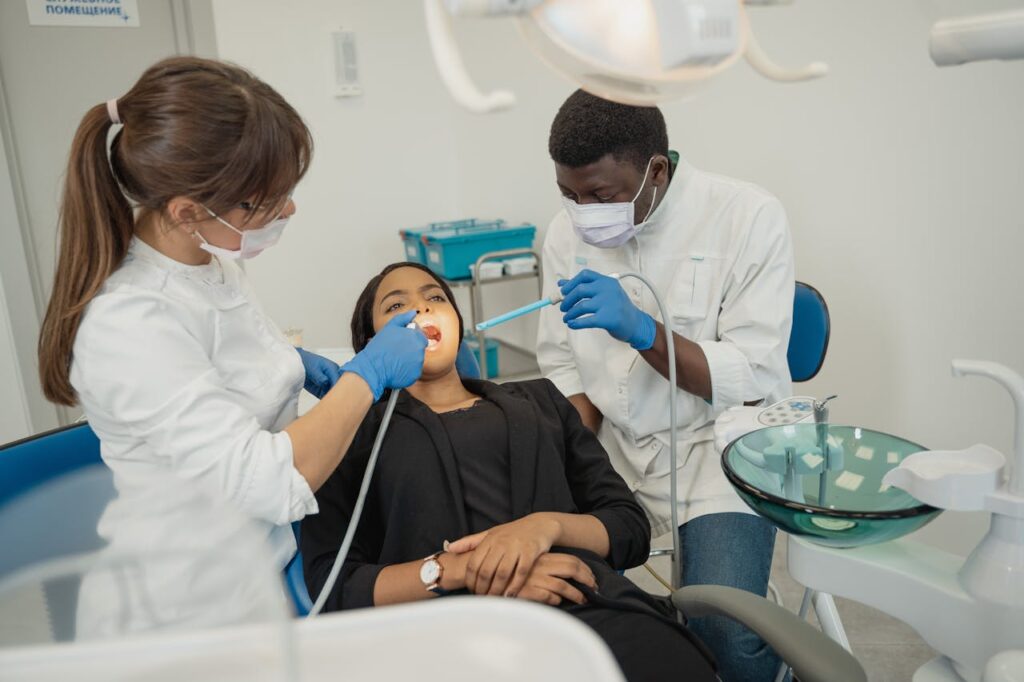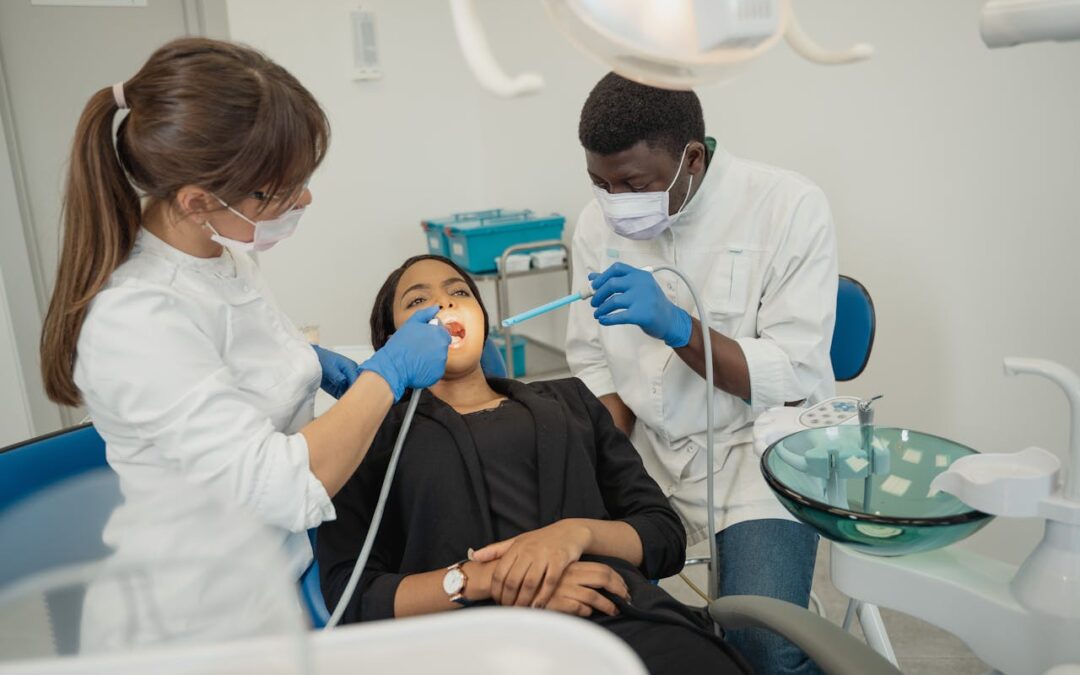One of the most fundamental practices for maintaining a strong and healthy smile is brushing your teeth correctly. Brushing at least twice a day is essential for removing plaque, food particles, and bacteria that accumulate on your teeth. It’s important to use fluoride toothpaste, as fluoride strengthens tooth enamel and helps prevent cavities. When brushing, use gentle circular motions to avoid damaging your gums or enamel. A soft-bristled toothbrush is ideal, as it effectively cleans without being too abrasive. Don’t forget to brush your tongue as well, as bacteria can accumulate there, leading to bad breath and other oral health issues. By brushing properly, you ensure that your teeth remain clean, your gums stay healthy, and your smile stays bright.
Flossing to Reach Between the Teeth

While brushing is essential, it only cleans the surface of your teeth. Flossing is just as important because it allows you to clean the areas between your teeth, where your toothbrush might not reach. Flossing daily helps to remove plaque and food debris from these tight spaces, preventing cavities and gum disease. It also helps to reduce the risk of gum inflammation and bleeding, which can lead to more serious oral health issues over time. Make sure to floss gently to avoid injuring your gums, and use a clean section of floss for each space to avoid transferring bacteria. Regular flossing, combined with brushing, ensures a complete oral care routine that promotes a stronger and healthier smile.
Using Mouthwash for Extra Protection
Incorporating mouthwash into your daily dental routine can offer additional protection against harmful bacteria. Mouthwash helps to rinse away any remaining food particles and plaque that may be left behind after brushing and flossing. It also reaches areas that are difficult to clean with a toothbrush or floss. Many mouthwashes contain antibacterial ingredients that help reduce the risk of gum disease, cavities, and bad breath. Additionally, some mouthwashes are formulated to strengthen enamel, protect against tooth sensitivity, and provide long-lasting freshness. Using mouthwash can be a simple yet effective way to enhance your oral care routine and keep your smile looking and feeling its best.
Eating a Balanced Diet for Optimal Oral Health
Your diet plays a crucial role in maintaining a healthy smile. Eating a balanced diet rich in vitamins and minerals helps to strengthen teeth and gums. Calcium, found in dairy products, leafy greens, and fortified foods, is essential for maintaining strong tooth enamel and preventing tooth decay. Vitamin D helps your body absorb calcium, so it’s important to get enough sunlight or consume foods like fatty fish and egg yolks. Additionally, foods rich in fiber, such as fruits and vegetables, can help stimulate saliva production, which naturally protects teeth by neutralizing acids and washing away food particles. Avoid sugary snacks and drinks, as they promote bacteria growth in the mouth, which can lead to cavities and gum disease. A nutritious diet not only supports your overall health but also contributes to a stronger, healthier smile.
Regular Dental Visits for Professional Care
Even with a solid daily oral care routine, regular visits to your dentist are essential for maintaining a strong smile. Dental professionals can identify potential issues that may not be visible or detectable at home, such as cavities, gum disease, or early signs of oral cancer. Routine checkups and cleanings help to remove plaque and tartar buildup that can lead to tooth decay and gum inflammation. Dentists also provide valuable advice on how to improve your brushing and flossing techniques, ensuring that you are following the best practices for your specific oral health needs. Scheduling regular dental visits, typically every six months, ensures that any problems are addressed early, allowing you to maintain optimal oral health and a beautiful, strong smile for years to come.

